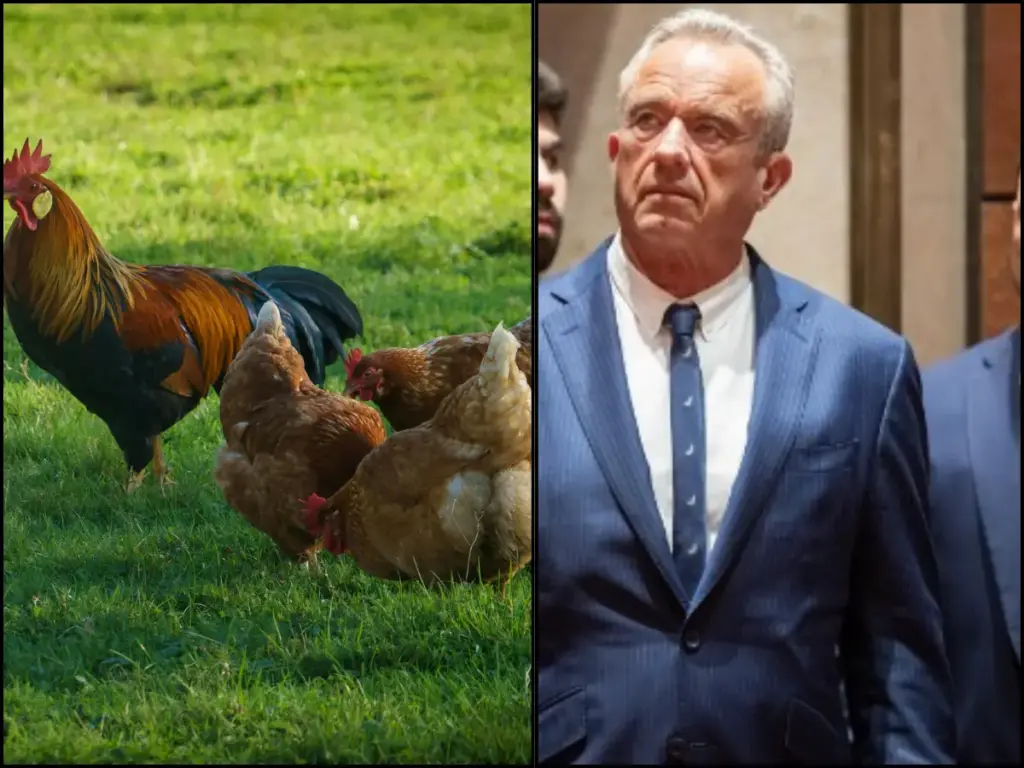
Robert F. Kennedy Jr, the United States Secretary of Health and Human Services, has stirred controversy with a suggestion that could have far-reaching implications. In March, Kennedy proposed allowing bird flu to spread unchecked among poultry, a move he believes could help identify and preserve birds immune to the virus. However, a recent study published in the journal Science warns that this approach could potentially trigger another pandemic.
The proposal, also backed by Brooke Rollins, the Secretary of Agriculture, involves letting the H5N1 virus, known for its high pathogenicity, “rip” through poultry populations. This strategy, according to Kennedy, would help in identifying birds that are naturally resistant to the virus. However, experts caution that such a course of action could be dangerous, leading to mutations and possible spillover to humans.
Bird Flu and the Threat of Disease X
The study, conducted by a team of virologists, veterinarians, and health security experts, highlights the risks associated with allowing the virus to spread unchecked. The researchers argue that such a scenario could lead to the emergence of Disease X, a term used to describe a hypothetical pandemic caused by an unknown pathogen. Although the specifics of Disease X remain unclear, bird flu is considered a potential candidate due to its ability to spread and mutate.
Erin Sorrell, a virologist at the Johns Hopkins Center for Health Security, stated, “Essentially, the longer you allow a virus that has shown to be effective in infecting multiple hosts survive in an environment, the greater the chance you give it to spread, to mutate, and to try its luck at adaptation.”
Current regulations require farmers to cull infected birds to prevent the spread of bird flu, with the US Department of Agriculture (USDA) providing compensation. Kennedy’s suggestion, however, challenges these established protocols.
Controversial Observations on a Canadian Ostrich Farm
The controversy deepened when Kennedy, alongside Dr. Mehmet Oz, the administrator for the US Centers for Medicare and Medicaid Services, suggested observing infected ostriches on a Canadian farm to gain scientific insights. Bird flu was detected in 398 ostriches on the farm between December 2024 and January this year. In a letter to the Canadian Food Inspection Agency, Kennedy speculated that the ostriches might have developed some immunity to the virus.
Dr. Oz even offered to relocate the birds to his Florida ranch for further observation. However, this suggestion has not been well-received by all experts in the field.
Sorrell expressed her concerns, stating, “Poultry infected with H5 shed a tremendous amount of virus. If effective controls designed to mitigate the quantity of viral shedding and known transmission pathways are removed, the exposure risk for other animals and humans on site and on neighboring farms will increase.”
Implications and Future Considerations
The debate over Kennedy’s proposal highlights the ongoing challenges in managing zoonotic diseases, which are diseases that can be transmitted from animals to humans. The potential for bird flu to mutate and adapt poses significant risks, underscoring the need for careful management and containment strategies.
As the world continues to grapple with the aftermath of the COVID-19 pandemic, the importance of preparedness for future pandemics cannot be overstated. Experts emphasize the need for robust surveillance systems, effective containment measures, and international cooperation to prevent the emergence and spread of new infectious diseases.
Moving forward, the dialogue surrounding bird flu and similar threats will likely intensify, with policymakers, scientists, and public health officials striving to balance scientific inquiry with public safety. The outcome of this debate could shape future strategies for managing zoonotic diseases and preventing pandemics.





